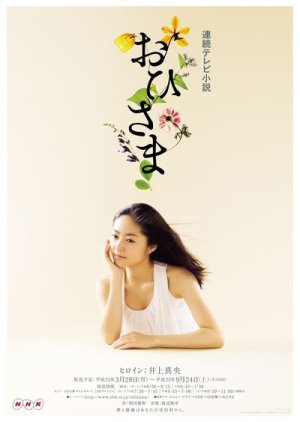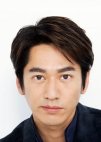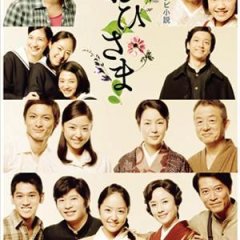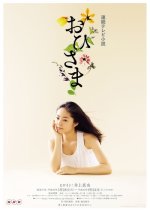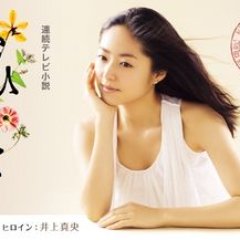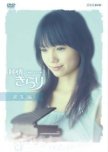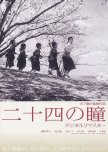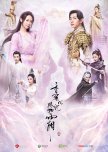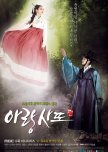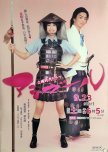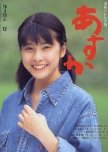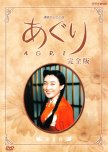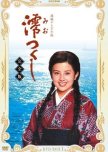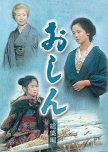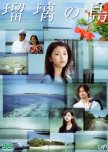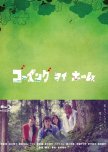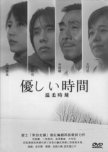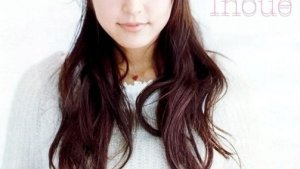 A Stalker's Guide to Inoue Mao
A Stalker's Guide to Inoue Mao En la Prefectura de Nagano, "Ohisama" cubre la vida de Sudo Yoko durante la Segunda Guerra Mundial. Sudo Yoko con su sonrisa es capaz de traer el resplandor a aquellos que están a su alrededor y ella sigue los pasos de su madre para reír en los tiempos duros. Durante el inicio de Segunda Guerra Mundial, Sudo Yoko es una estudiante de la escuela secundaria y "Ohisama" cuenta cuando ella finalmente se convierte en profesora, se casa y tiene un niño. Entonces abre un restaurante de soba con su estudiante. Synopsis by WikiDrama Edit Translation
- Español
- English
- magyar / magyar nyelv
- dansk
- Título original: おひさま
- También conocida como: Sun
- Guionista: Okada Yoshikazu
- Director: Kasaura Tomochika, Shoen Takehiro
- Géneros: Histórico, Romance, Vida, Guerra
Reparto y créditos
- Inoue Mao Papel principal
- Harada TomoyoSudo Hiroko [Youko's mother]Papel secundario
- Terawaki YasufumiSudo Ryoichi [Youko's father]Papel secundario
- Tanaka KeiSudo Haruki [Youko's brother]Papel secundario
- Nagayama KentoSudo Shigeki [Youko's brother]Papel secundario
- Yagi YukiSudo Youko [Young]Papel secundario
Reseñas

At first I was daunted at the fact of watching 156 episodes for a Japanese family drama. However when I found out that each episodes only consists of 15 minutes each, I realized that this is simply like watching 39 episodes of Korean drama without the redundant factors and draggy moments. This is what I love about JDramas, they go straight to the nitty and gritty details instead of mooning over things for at least 10-15 minutes in which the main lead stares and contemplates into the air and the background music only plays over. Heh. Setting that aside, what I enjoyed most about this drama is having my favorite actress Inoue Mao on screen while she starred alongside the good looking actor Kengo Kora. I’ve seen the guy in so many movies and several dramas and he never ceases to make smile as I simply stare at him. He’s such an eye catcher.
Since the setting is around World War II and Japan has been colonizing its neighboring countries, the people who lived in Japan during those times were also in turmoil despite being a powerful country back then. Mao who acted as Yoko, portrayed an average girl living during those days. Her character somehow showed how war can turn a bunch of ordinary people living mundane lives to suddenly struggling to survive during and after the war. The overall feel and transition of the storyline isn’t violent or brutal and it has this sense of hope all throughout the drama. It was light and consistent. Another factor that made this good is the supporting cast, starting with Yoko’s family, then her best friends, the Maruyama Family and finally to her students whom she was able to support and vice versa until she grew old.
The cinematography is fairly simple and was definitely shot in a studio but the fact that they created the place nicely gave it a warm feeling of familiarity. The background music was okay, although not that memorable but it really had a nice ring to it as the OST played softly in the background.
I would love to rewatch this again if I had the chance. For now, I’m recommending this for those looking for a family drama and looking forward to watching something light, heartwarming and inspiring all at the same time.
¿Te ha parecido útil esta reseña?

This review may contain spoilers
"All women are like the sun."
"Ohisama" is the fifth asadora that I have completed. The drama has been on my radar for a long time since it stars Mao Inoue, whom I love from the "Hana Yori Dango" series. However, I was always scared of the length of asadora series. Thankfully, I have gotten over that and quickly put "Ohisama" on my plan to watch list. I was actually surprised by how much I liked "Ohisama." It even rose to become my favorite asadora, beating out my beloved "Hanako to Anne" by a slight margin.The drama uses an interesting framing device similar to "Oshin" (which I was watching concurrently). It opens with a modern-day (2011) housewife, Fusako (Yuki Saito), meeting an elderly woman, Yoko (Ayako Wakao), who asks if she wants to hear her story. The story then frequently returns to present-day Yoko and Fusako as the drama unfolds. Ayako Wakao also provides the narration. I think both devices combined enhanced the story-telling experience, especially for a drama set during World War II. Subtle hints of the fate of characters were given either through the narration or a mention/appearance in the modern day. This helped keep the sometimes sad tone of the series down in my opinion.
Yoko's story starts in 1932 when her family moves to Azumino, a village in Nagano Prefecture. Her mother, Hiroko (Tomoyo Harada; whom I loved in "Hanbun Aoi") has long been sick and has chosen this place to die essentially. [Only the first week and I'm sobbing.] Yoko losing her mother at the young age of ten shapes the entire rest of the story, even to the final seconds. Her mother gives her advice to be "like the sun" (her name uses the character for the word for sun). Yoko from on frequently tries to be the sun for those around her. Older Yoko uses the quote "All women are like the sun" to Fusako much later in the drama and I just thought was such a beautiful thought.
The story then shifts to Yoko's high school days with her best friends, Machiko (Maiko) and Ikuko (Hikari Mitsushima). These two are some of the most important people in her life besides her father, elder brothers, and later on her husband, daughter, and in-laws. Yoko becomes a teacher after graduating (This will be her main ambition for the majority of the series). Unfortunately, it is now 1941, the year Japan bombed Pearl Harbor. If you're familiar with the Japanese retelling of the war, you'll see the typical "Japan cannot lose" rhetoric the common people were fed at the time. Yoko, unlike in the previous asadoras I've seen ("Hanako to Anne" and "Junjo Kirari"), is not even slightly politically inclined one way or the other. She is a little bit disturbed by teaching the children military tactics, but does as she is ordered essentially. Perhaps paradoxically, I found the war easier to watch because of this. I would've been harder to watch Yoko fighting against the tide, really. Yoko represents the common people whom were simply there.
Now addressing Yoko's husband, Kazunari (Kengo Kora). Their relationship is probably my favorite of the asadoras I've seen so far. These two are so sweet together and seeing them smiling at each other makes me want to smile. Their relationship starts from an "omiai" (arranged marriage meeting), but they feel totally natural with each other. The chemistry was so good. After he comes back from the war, I loved seeing them grow and learn together. Even up to the next to last week, they are becoming better at communicating with each other. I love to see such a healthy relationship in drama land. The way they tease each other is so cute too.
"Ohisama" has a lot of great supporting characters. I honestly loved them all and I can't even single one of them out because then I'll just start listing them all. Yoko's best friends are obvious contenders. The writers kept their lives consistently surprising. I wish Hikari Mitsushima had been given her own asadora; she was so good as Ikuko. Yoko's mother and father-in-law are like real parents to her and I love their constant banter. Likewise, Yoko's banter with her brother Shigeki (Kento Nagayama) never falls to entertain. His relationship with Ikuko was a surprise, but in hindsight, I should've seen it coming. They're perfect for each other. Then there's Yoko's father, brother Haruki, grandmother, Natsuko-sensei, Kayo-san and her husband, and all of her wonderful students. Haha I did just end up listing them lol. On a side note, "Ohisama" also features two future asadora heroines Tao Tsuchiya ("Mare"; also supporting in "Hanako to Anne") and Sakura Ando ("Manpuku").
The ending of "Ohisama" was bittersweet but not because anyone died. It's because I didn't want it to end. I've loved plenty of shows and books before, but there's very few I wish could go on forever. This one I would pick to watch on-and-on until the end of time. The finale, however, was still perfect so if it had to end, I'm happy it ended this way.
¿Te ha parecido útil esta reseña?

